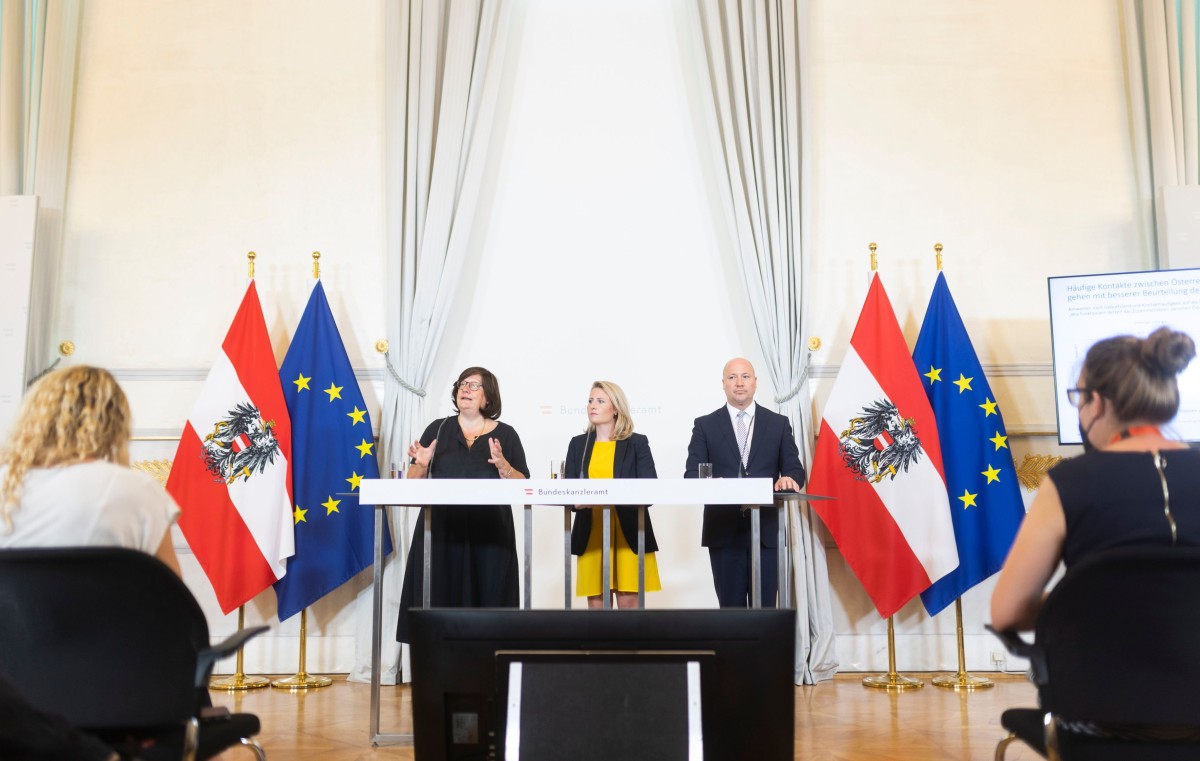Sponsored Content
Rising Migration Poses New Challenges for Austria
Countries ♦
Published: July 25, 2022; 22:15 ♦ (Vindobona)

The year 2022 has so far been exceptional for Austria in terms of integration and presents Austria with a mammoth task, according to Integration Minister Susanne Raab. The presentation of the Integration Report 2022 on Monday provided new insights into immigration in Austria.
 Austrian Federal Minister Susanne Raab (middle), Chairwoman of the Expert Council for Integration Katharina Pabel (l.) and Director General of Statistics Austria Tobias Thomas (r.). / Picture: © Bundeskanzleramt (BKA) / Christoper Dunker
Austrian Federal Minister Susanne Raab (middle), Chairwoman of the Expert Council for Integration Katharina Pabel (l.) and Director General of Statistics Austria Tobias Thomas (r.). / Picture: © Bundeskanzleramt (BKA) / Christoper Dunker
The report of the Expert Council on Integration, which Integration Minister Raab presented together with the Chairwoman of the Expert Council on Integration, Katharina Pabel, and the Director General of Statistics Austria, Tobias Thomas, offers a review, analysis and a look into the future of integration work for the 11th time this year. The report is thus a substantial reference work.…
or Log In
Fast News Search





